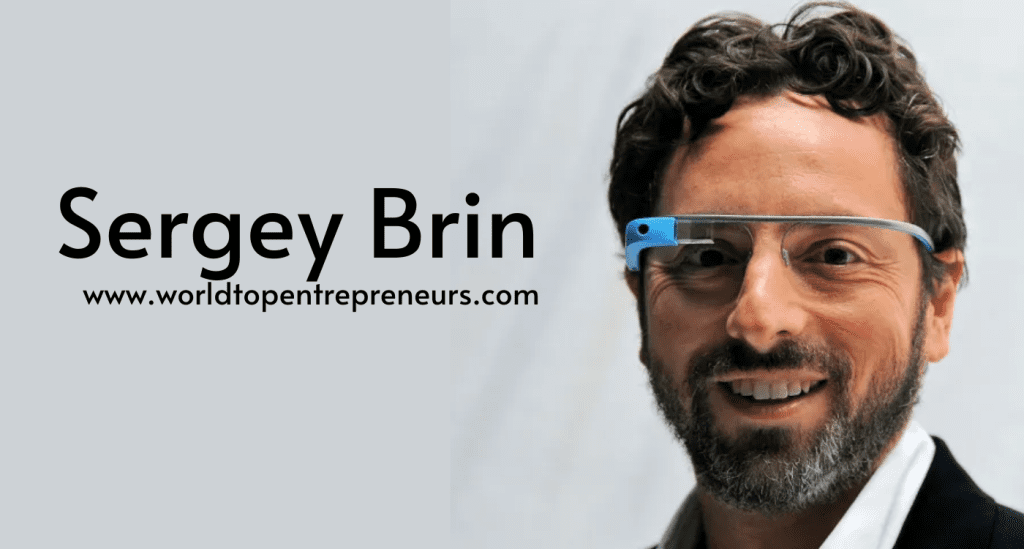Sergey Brin, a name synonymous with innovation and technological advancement, is a key figure in the story of modern technology. As one of the co-founders of Google, Brin’s journey from a curious computer science student to a pioneering entrepreneur is a testament to the impact one individual can have on the world. This article explores Brin’s life, his contributions to technology, and his influence on the digital landscape, offering a detailed and personal look at the man behind the tech giant.
Early Life and Education
Born on August 21, 1973, in Moscow, Russia, Sergey Mikhaylovich Brin’s early life was shaped by the tumultuous political climate of the Soviet Union. His parents, Mikhail and Eugenia Brin, were both highly educated professionals; his father was a mathematician, and his mother was a researcher at NASA. The family’s intellectual environment provided a fertile ground for Brin’s burgeoning interest in technology.
In 1979, when Brin was just six years old, his family emigrated to the United States, seeking greater opportunities and freedom. Settling in Maryland, Brin’s parents continued to support his educational endeavors, fostering a curiosity that would eventually lead him to the frontiers of technology.
Brin attended the University of Maryland, where he earned a Bachelor of Science degree in Computer Science and Mathematics. It was during his time at Maryland that Brin met Larry Page, his future business partner and co-founder of Google. Both students shared a passion for technology and a vision of harnessing the power of the internet in transformative ways.
The Birth of Google
The idea that would become Google began as a research project at Stanford University. In 1995, Sergey Brin and Larry Page were both pursuing their PhDs at Stanford, and their paths crossed when Page was assigned to show Brin around the university. Despite their differing perspectives—Brin was skeptical of Page’s ideas, while Page found Brin’s criticisms constructive—they soon realized that their combined skills and ideas could lead to something extraordinary.
Their collaborative project, initially called “Backrub,” focused on improving search engine technology by analyzing the relationships between websites. This novel approach used “PageRank,” an algorithm that evaluated the importance of a webpage based on the number of links to it and their relevance. This was a significant departure from the existing search engines that ranked pages based primarily on keyword frequency.
In September 1998, Brin and Page officially launched Google, a name derived from the mathematical term “googol,” which signifies a 1 followed by 100 zeros. This name symbolized their ambition to organize an immense amount of information and make it universally accessible. Google’s search engine quickly gained traction due to its speed, relevance, and simplicity, setting it apart from its competitors.
Building an Empire
Google’s rise was nothing short of meteoric. By the early 2000s, the search engine had become the dominant player in the online search market. Brin and Page’s vision extended beyond just a search engine; they aimed to build a comprehensive digital ecosystem. Under their leadership, Google introduced a range of products and services, including Gmail, Google Maps, and Google Drive, each revolutionizing its respective domain.
In 2004, Google went public, marking a significant milestone in its journey. The company’s initial public offering (IPO) was a success, and Brin, along with Page and other early employees, became billionaires almost overnight. However, Brin and Page were not content with merely creating a successful search engine; they sought to push the boundaries of technology and innovation.
Diversification and Innovation
Google’s growth was marked by a series of strategic acquisitions and innovations. The acquisition of YouTube in 2006 for $1.65 billion was a landmark move that expanded Google’s reach into online video content. This acquisition proved to be incredibly prescient, as YouTube has since become the world’s leading video-sharing platform.
In 2008, Google launched the Android operating system, an open-source platform for mobile devices. Android’s introduction was a game-changer in the smartphone industry, providing a versatile and customizable alternative to Apple’s iOS. Today, Android powers the majority of smartphones globally, underscoring Brin and Page’s foresight in embracing open-source technology.
Google’s foray into hardware was another testament to their innovation. The introduction of products like the Google Pixel phone and Google Home showcased the company’s commitment to integrating hardware and software seamlessly. Brin’s interest in technology extended to experimental projects such as Google Glass, a wearable computer with an optical head-mounted display. Although Google Glass faced challenges in gaining widespread adoption, it represented Brin’s willingness to explore uncharted territories.
Alphabet Inc. and the Shift in Focus
In 2015, Google underwent a significant restructuring, leading to the creation of Alphabet Inc. as its parent company. This move was driven by the desire to better manage Google’s diverse business interests and to allow for greater focus on core areas. Under Alphabet, Google became a subsidiary, while other ventures, including the innovative “Other Bets” segment, were given more autonomy.
Sergey Brin and Larry Page stepped down from their roles as Google’s CEO and President, respectively, to assume roles as the CEO and President of Alphabet. This shift allowed Brin to focus on long-term projects and innovations without being bogged down by the day-to-day operations of Google’s core business.
Personal Life and Philanthropy
Outside of his professional achievements, Sergey Brin’s personal life and philanthropic efforts have also made headlines. Brin married Anne Wojcicki, a prominent biotechnology analyst and co-founder of 23andMe, in 2007. The couple had two children together before announcing their separation in 2015. Brin’s family life has often been intertwined with his professional endeavors, reflecting a blend of personal and professional passions.
Philanthropy has been an important aspect of Brin’s life. Alongside his work with Google.org, the company’s philanthropic arm, Brin has supported various causes, including education, healthcare, and scientific research. In 2014, he donated $5 million to the Michael J. Fox Foundation for Parkinson’s Research, a cause close to his heart due to his mother’s battle with the disease.
Brin has also been involved in environmental initiatives, such as supporting clean energy projects and investing in technologies aimed at reducing carbon emissions. His commitment to addressing global challenges reflects a broader vision of using technology to make a positive impact on society.
Legacy and Impact
Sergey Brin’s influence extends far beyond the boundaries of Google. His work has fundamentally changed the way we interact with information and technology. Google’s search engine, now a ubiquitous part of everyday life, has transformed the internet into an easily navigable resource. The company’s innovations in advertising, cloud computing, and mobile technology have set new standards for the industry.
Brin’s contributions to the field of technology are characterized by a relentless pursuit of innovation. His ability to envision the future and to take bold risks has played a crucial role in shaping the digital landscape. Whether through Google’s core products, its ventures into new areas, or its philanthropic efforts, Brin’s impact is evident in numerous facets of modern life.
As he continues to explore new frontiers through Alphabet Inc. and other ventures, Sergey Brin remains a leading figure in the technology industry. His journey from a curious student to a global technology leader is a source of inspiration for aspiring entrepreneurs and innovators around the world. Brin’s story is a reminder that with vision, creativity, and determination, it is possible to transform ideas into reality and to leave a lasting legacy on the world.
In conclusion, Sergey Brin’s life and career embody the spirit of innovation and exploration that defines the modern tech era. His contributions to Google and Alphabet Inc. have not only reshaped the technology landscape but have also demonstrated the power of technology to drive progress and address global challenges. As we look to the future, Brin’s legacy will undoubtedly continue to influence and inspire the next generation of innovators and entrepreneurs.





















